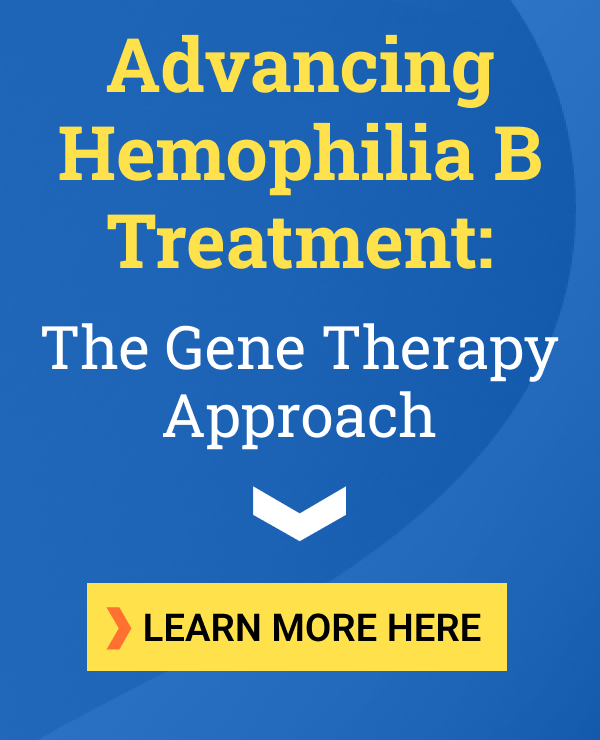Pfizer Launches Phase 3 Program to Test Gene Therapy for Treating Hemophilia B

Pfizer has partnered with Spark Therapeutics to launch a Phase 3 program to evaluate the safety and effectiveness of its factor IX replacement gene therapy for treating hemophilia B.
Replacement of factor IX (FIX), the clotting protein lacking in hemophilia B, will be done via the fidanacogene elaparvovec gene therapy (previously known as PF-06838435 and SPK-9001).
This is a gene transporter (or vector) that contains a harmless adeno-associated virus (AAV) capsid, or protein shell, and the gene that provides instructions for making factor IX.
The Phase 3 trial was designed to investigate the effectiveness of the FIX replacement gene therapy in the usual care conditons of hemophilia B patients.
An open-label, six-month lead-in Phase 3 study (NCT03587116) will measure the patients’ annualized bleeding rate, or the number of bleeds over the number of days, number of adverse events and other events of special interest, as the existence of inhibitors of factor IX, thrombotic (clotting) events and hypersensitivity reactions to the treatment.
In this trial, there is no investigative product to be administered. Patients will be administering their own standard of care FIX replacement therapy.
The data from the study will be used as a control for patients who will be enrolled in the next part of the Phase 3 trial for the investigative gene therapy.
Earlier this year, Pfizer and Spark Therapeutics reported data from 15 patients participating in the Phase 1/2 study (NCT02484092) designed to treat severe or moderately severe hemophilia B (FIX levels under 2% of normal concentrations).
Results showed no serious adverse or thrombotic events. The therapy also led to significant reductions in bleeding and factor IX infusions.
“With the lead-in study now open and actively recruiting patients, we are excited to begin our Phase 3 program evaluating fidanacogene elaparvovec for the treatment of hemophilia B,” Brenda Cooperstone, MD, senior vice president and chief development officer at Pfizer, said in a press release.
“The current data suggest immense promise for the use of this potential one-time treatment option. We look forward to the opportunity to continue the progress achieved by Spark Therapeutics for patients living with hemophilia B,” she added.
Spark Therapeutics transferred its investigative hemophilia B gene therapy program to Pfizer, who initiated the Phase 3 trial program.
Under the terms of the agreement, Pfizer will be responsible for the clinical studies, manufacturing, regulatory activities, and global commercialization of any products related to the hemophilia B gene therapy program.
“We are pleased to have transitioned fidanacogene elaparvovec to Pfizer following the positive results of the ongoing Phase 1/2 clinical trial,” said Katherine A. High, MD, president and head of research and development of Spark Therapeutics.
“The initiation of the Phase 3 program marks an important milestone toward our goal of one day potentially freeing patients with hemophilia B of the need for regular infusions, while potentially eliminating spontaneous bleeding,” she said.







